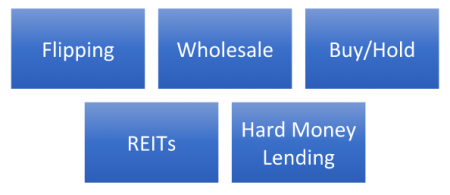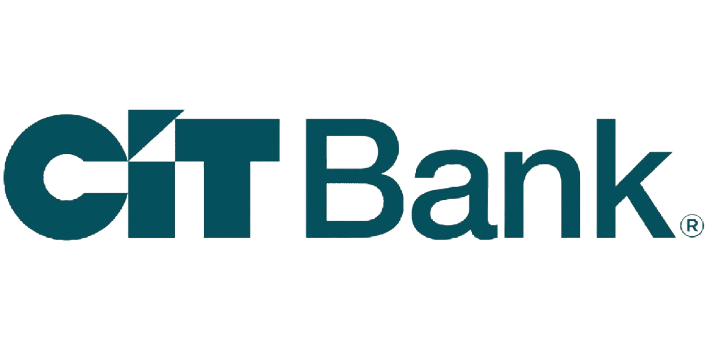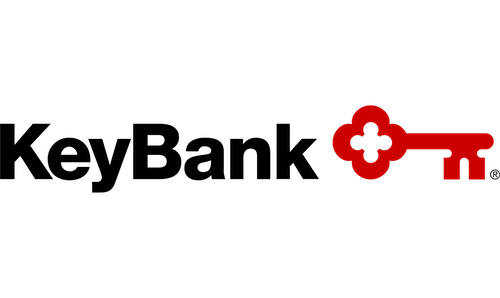After hours of crafting this, I think I’ve got it. A realistic, practical, applicable guide to breaking into the world of real estate investing for beginners!
Why doesn’t this apply to everyone? Why specifically millennials or those to want to invest in real estate in their 20s?
*Sigh*
Fair enough. Here’s why:
1) We are generally viewed as spoiled and unmotivated. (Boo!)
- Due to imposed biases and unfair assumptions made about us, we are inherently at a disadvantage.
- We’ve got to do our research and hold an intelligent conversation with others about our investing goals, and how we plan to reach them. We need to stay on top of the ‘hot topics’ of the economy, local and global. We can’t expect people to take us seriously if we don’t meet them halfway. We can’t give anyone the chance to brush us off because of our age. It’s frustrating and annoying. No more 🙂
2) We have a unique problem. A huge unique problem.
- With $1.438T in outstanding student loans, we aren’t exactly known for dancing around debt-free. Granted, a portion of this debt is represented by the growing segment of senior cosigners, but we’re still carrying the lion’s share. This is an unusually large burden, unfortunately characterizing our generation.
- We need to be intentional about investing, even in the face of student loan debt. Would you expect someone to buy a home on a 30-year fixed mortgage and not invest for 30 years until the mortgage was paid off? Of course not. It isn’t any different with student loan debt. Don’t wait.
- Please don’t throw out the “A home is an investment” theory. It just isn’t true. (Sorry, not sorry!)
3) Who else is going to tell us?
- Money management isn’t taught in most high schools or colleges, much less the psychology behind our money-making decisions. (Super important!)
- We have to help each other sort through all of this stuff. Like anything, it can become complicated, but the basics are pretty cut and dry.
We’re fighting an uphill battle, but never fear! There are some qualities that benefit us:
- We are determined
- We are curious
- We are spirited
- We value experiences over tradition
If you’ve wondered, “How do people even start to invest in real estate?!”, this is for you.
I’m convinced that real estate is one of the most powerful, effective means through which to build wealth. According to these Vancouver real estate investment agents, real estate market forecasts are soaring. There is no better time to get in on the action, then now.
The cool thing is that it is openly accessible to everyone, with a little preparation and focus. It isn’t just for a bunch of old guys shuffling through 18 holes of golf.
For my own part, I’m 24 years old and I humbly and thankfully consider myself financially free. This term is strewn about the corridors of the internet so loosely, it seems like everyone is “financially free”. This doesn’t mean I’m rich. It means that money doesn’t “weigh in” on any of my decisions.
In fact, I’m quitting my job in a month to focus on my passions. I don’t plan on working for anyone else, ever again.
However, if the sky comes crashing down on my entrepreneurial plans, I’ll be OK for at least one year, without needing to seek employment. Real estate investing (along with wise money management) has afforded this opportunity.
It allows me to make moves from a position of strength, rather than fear.
Why Did I Choose Real Estate?
So, let’s get to it! First, why did I choose real estate?
Investing in anything is designed to achieve a specific, measurable goal. No one just throws a wad of money into the stock market and hopes for the best….right..?
My specific, measurable goal a couple of years ago went something like:
|
I do invest in mutual funds and have a retirement account with my current employer, but these represent the minority share of my holdings.
Those are not at all bad options, but to achieve my short-term goal of exiting the workforce, there was no way I could use a long-term vehicle. It’s sort of like using an oven to pop popcorn. There is just a better way to meet that specific need.
If you have a portfolio of mutual funds or ETFs from Vanguard, Fidelity, Schwab, etc., keep investing in it over the long term. This is a solid part of any investment plan, but it is designed to perform overtime.
Real Estate Investing For Beginners
Wouldn’t it be great if you could become a landlord of rental properties without dealing with all the hassle of buying, improving, and re-selling real estate?
You don't have to be a millionaire to invest in these types of properties. You can now find your inner property owner with Ark7.
As with any other rental property, investors earn returns from the rental cash flow and any appreciation in the property value when it’s sold, and all without painting a wall or getting your hands dirty.
There is a reason why the number of investors on its platform increased last year, the sector is booming with investors clamoring to get a return outside of stocks and bonds.
If you’re interested, I recommend you sign up for more information from Ark7 by clicking here.
Ark7 helps you invest in real estate as easily as buying stocks. Browse vetted properties, diversify your portfolio, and earn passive income. Ark7 can offer you some of the best features in the marketplace for investing in rental real estate, especially when it comes to investing directly in a rental property.
Just a Few Types of Real Estate Investments

There are many more ways to invest in real estate, but I’ve found the most realistic and goal-specific method for me was buy/hold.
Without going into boring detail for each one, the main reasons are:
- Flipping = full-time job, requires a lot of money (mine or a partner’s)
- Wholesaling = full-time job, requires continual pipeline of deals to market/sell to other investors
- REITs = (I actually like these. They are a behind-the-scenes way to begin investing in a variety of asset classes, but they are a long-game strategy.)
- Hard Money Lending = Requires a lot of capital, and willingness to risk losing it if a deal underperforms
The basic concept is to purchase a house or an apartment and rent it out for a profit.
Simple enough, right? Of course, there are more levels to be explored (residential, commercial, industrial, etc.) but level one looks pretty good to me for now 🙂
Consider some advantages of buy/hold:
- It’s a tangible asset, so you can go see it any time after you've done your due diligence.
- You have more control over its performance (and your returns).
- If some economic, political, or environmental factor goes haywire in another country, a sizeable portion of one’s stock portfolio can be lost overnight.
- Gives you instant credibility in the eyes of potential private investors, to help fund bigger deals in the future.
- Depreciable write-offs.
- Market volatility poses a bigger threat to flippers.
- The need for rental housing won’t ever vanish.
- There will always be a segment who are uninterested in home ownership, or unable to pursue it at the time for various reasons (a.k.a. “not bankable” due to poor credit, not enough income, debt ratio, etc.)

That’s why I like buy/hold.
It has so many benefits. There are benefits to each niche, but the scales seem to be tipped pretty heavily in buy/hold class.
Before getting too far into this, let me also clarify that I personally prefer to invest in multifamily housing, rather than single family. Here’s a snapshot of comparisons that I’ve found to be true so far:
SFR Investing
| Pros | Cons |
| Higher inventory | More competition |
| Potentially lower down payment | Market determines value |
| Potential for higher quality tenant | 100% vacancy when empty |
MFR Investing
| Pros | Cons |
| Investor-sellers, no emotional ties | Potentially higher down payment |
| Economies of scale | Potential for lower quality tenant |
| NOI determines value (commercial) | Average turnover cost is higher |
The Exact Steps That I Took to Begin Investing
When I made the decision to get started with buy/hold MFR in January 2015, here’s what I did:
Started saving
- Wrong move. I should’ve already had my emergency fund together. I didn’t. You should definitely have this before you start 🙂
Mentally prepared
- This doesn’t sound like a big deal, but it’s pretty important. The strategy I chose is known as house hacking – living in one room/unit and renting the extra rooms/units. I knew I wanted my own separate space, so I didn’t want to buy a SFR and rent out the rooms. Either way, I would be living in close proximity to my tenants, which can be awkward, especially if there is trouble (not paying rent, starting a “small” kitchen fire, having loud arguments at 2am, etc….yes, all of these happened..and more..smh..) There is a mental wear and tear that is often overlooked with this strategy.
Began searching for properties
- Again, wrong move. I should’ve begun my mortgage application process with a lender before actively searching for a property.
- Most real estate agents will want to see a pre-approval letter from a lender before exhausting their time searching for a property for/with a client.
- Most sellers will want to see the same thing, to lessen the likelihood of locking the property under contract, only to have the financing fall through prior to closing.
- It took a few months to find a property with numbers that made sense. When evaluating potential properties, the biggest factor at the time was the purchase price. The purchase price is important, but I know now, that the LOCATION is 10x more important than the cost.
- There are some neighborhoods in just about every city, where it just doesn’t pay to buy.
Found a property, and continued the mortgage process.
I was able to find a duplex, listed for $114,500. The property needed a considerable amount of work (red flag for a newbie with no money and no construction experience!) but it was literally the only property in my budget.
(Tip: FHA has another product, the 203(k) loan, which can be used to include the costs of the needed repairs into the loan, so you don’t have to come out of pocket for the repairs! Why I didn’t do this, I don’t know. Don’t do what I did!) - Paid a few hundred bucks for a home inspection. NEVER, EVER, EVER, EVER, EVERRR buy a home (personal or investment, SFR, or MFR) without getting an inspection. It covers every square inch of the home, inside and out, and is invaluable in letting you know exactly what you’re getting into.
- Continued with the mortgage process. I applied for an FHA-insured mortgage, which (usually) only requires 3.5% down, and can be used to purchase a 1, 2, 3, or 4 unit property.
- The FHA-insured mortgages are intended to be used for a primary residence (until it’s paid in full/refinanced), so one stipulation is that they owner move into the property after closing.
- The appraisal came in at $95,000 and the sellers agreed to lower the contract price to match. My down payment was $3,325 and my portion of the closing costs were just under $1,000. I bought my first investment property for $4,300 out of pocket. My mortgage payment including taxes and insurance was $735.08.
- FHA guidelines give the buyer 60 days to occupy the home after closing. I gave one of the tenants two months to move out, and collected both rents for those two months.
- Combined rents were $1,330. After the mortgage payment, I had a “spread” of $594.92. I say “spread” because there are expenses to factor in, but those expenses won’t actually come up every month. On paper the profit may not be much (because of each expense being accounted for) but in real life, you won’t have to buy a new fridge each month, or replace the water heater each month, etc.
- There are some neighborhoods in just about every city, where it just doesn’t pay to buy.
- Again, wrong move. I should’ve begun my mortgage application process with a lender before actively searching for a property.
I have a property, now what?!?
Here’s what I did next, step by step:
- Received a bag o’ keys at closing (ugh….)
- Drove to the property to (re) introduce myself to the tenants. I’d just met them a few weeks prior during the home inspection.
- Informed them that they would be signing a new lease shortly and told them where to start sending their rent going forward.
- (Went home and Googled how to make a lease, lease templates, etc.)
- Set up separate (personal) bank accounts for the property
- For my sanity, and for tax simplicity, I opened a new checking and savings account. The checking account was for the incoming rent and outgoing expenses. The savings account was to hold the security deposits separately from the rents.
- Filed documents for an LLC
- I should’ve done this BEFORE closing, but I didn’t. after the LLC was finalized, I did a few things:
- Opened up business bank accounts, moved the money over, and closed the personal accounts
- Applied for two business credit cards
- I should’ve done this BEFORE closing, but I didn’t. after the LLC was finalized, I did a few things:
- Set up property management software to help maintain rent records, and enable tenants to submit maintenance requests, pay rent, etc. online. I hate paper checks, receipts, etc.!!
- I made it a point to set up systems that fit my personality and desired lifestyle. I know I prefer to have everything integrated online and automated, so I made every decision around that premise. It makes my quality of life a lot better.
- Spent about $34k over the next 9 or 10 months, completely gutting/rebuilding both sides of the duplex. A few things to note here:
- This was without a doubt the most stressful period of my life. I worked 10+ hour days at a job I detested, and couldn’t even come home to a peaceful environment to unwind. There was clutter, trash, materials, tools, etc. everywhere throughout the process. It was a definite psychological toll. Just the act of spending so much money in such a short period of time was very unsettling.
- The $34k came from my W2 savings + bi-weekly paychecks, business credit cards, and a small personal loan from my parents. (I didn’t ask for the loan, and wasn’t going to. They offered to help with the last portion of work, when they saw how serious I was with everything up to that point. I’m thankful for it, but would’ve slugged it out for a few more months to pay for it myself if they didn’t offer the assistance.)
- Increased the rent on one side from $650 to $875 (I was still living in the other side)
Refinanced at the 12 month mark, with the same community lender who holds my business accounts. (Property appraised at $130k, new payment went to $742)
FHA regulations only allow for one outstanding FHA-insured loan at a time, unless certain specific criteria are met. Refinancing into a conventional loan effectively pays off the existing FHA trade line, freeing me up to do purchase another 2-4 unit MFR with 3.5% down, move in, rent out the extra units, etc. - I was exhausted from going through the whole process, but knew that as long as I was living in the duplex, I wasn’t really making any money. Yes, there is a small margin of around $133/mo, but that isn’t anywhere near my goal of $1,000/mo. I had to move out in order to rent the unit I was currently living in.
Rinse and repeat
- I bought a 4unit this time, with 3.5% down, and moved in. Three units are rented, and I’m in the fourth unit.
- The mortgage is $1,460 and the rent WITH ME IN ONE UNIT is $1,725. There is a small spread of $265/mo.
- The rent on the other unit of the duplex is $850. The mortgage is already covered from the rent on one side.
- Duplex cash flow ($133+$850) = $983
- Quadplex cash flow = $265
- Total monthly cash flow = $1,248
- I met my goal of $1,000/mo in (semi) passive income, two years sooner than I’d planned! 🙂
The cool thing with scaling up, is that the systems that were in place for the duplex, are still there. All I have to do is plug the quad into the machine and let it run itself.
- The LLC is still there
- The business bank accounts are already there
- The online PM software is already there
- All of my “infrastructure” (leases, company policies, online application, etc.) is already there
While I’ve got less than 30 working days before unemployment, I’m not nervous or worried. I’m comfortable in knowing that I’ve got a foundation from which to make these decisions, instead of quitting and blindly hoping “it’ll all work out”.
Parting words
I hope this was helpful. There is so much that goes into “real estate investing”, but I don’t want you to be overwhelmed.
Before I go, I have a favor to ask: Gauge your level of comfort with the idea of investing in real estate, and your preparation (savings, other factors, etc.). Take the next step after that.
If you’re totally uncomfortable, research more.
If you’re OK with the idea, but don’t have any money saved up, work on that piece.
If you’ve got the funds, but not the credit to purchase, work on that.
Don’t stay in the place you’re comfortable. All growth happens outside of this space. Will you do this for me?
Last tip (promise!)
I know how tempting it is to skip over all of this, and just buy a SFR to live in for yourself. After all, you’re maxing out your 401(k), have a bit in savings, and try not to eat out too often. I get it, I really do.
But since I’ve gone through this experience in house hacking the duplex, then moving on to house hack the quad, I’ve seen the other side of this. It is so worth the sacrifice.
Just the incredible rate of savings alone makes this worth giving it a shot. Unless you’re going to rent the extra rooms, I highly discourage buying a SFR to live in, until you get a solid financial foundation. Adding another liability will only push out the finish line of your financial freedom. Stay strong!
Most of my friends that saw me going through this process almost two years ago ARE STILL RENTING, throwing away hard-earned cash each month. Meanwhile (after a lot of sacrifice and many stressful nights) I haven’t paid a mortgage payment out of pocket in almost two years, and scraped my way to up 5 rental units.
Just food for thought.
Whatever decisions you make, make them from a position of strength, not fear. If you have any questions about real estate investing for beginners, just leave a comment!
See you around!
-Mark
Resources












